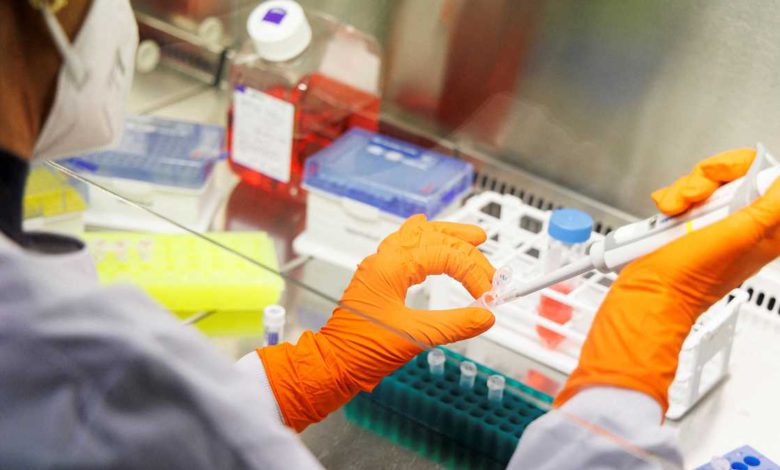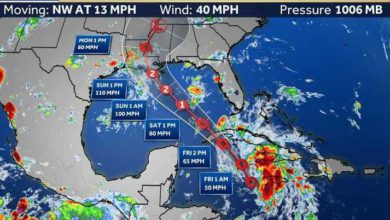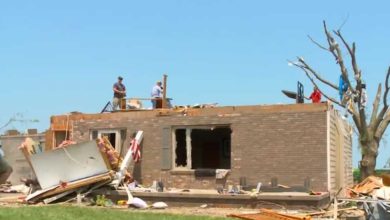

The Biden Administration is expected to detail plans to roll out more monkeypox vaccines across the U.S.The move comes after pressure from states, who have been pushing the Administration to release more doses of monkeypox vaccine from the Strategic National Stockpile which is managed by the Office of the Assistant Secretary for Preparedness and Response at the Department of Health and Human Services.Related video above: LGTBQ community concerns over monkeypox stigmaThe plan will allocate doses based on case rates in a state, focusing on men who have sex with men and their partners, as well as anyone who thinks they might have been recently exposed to the virus, according to two sources familiar with the government's plans who were not authorized to speak with reporters.Currently, 10 states would be considered to be in the first tier for priority in ordering vaccines.The plans are expected to be officially announced later Tuesday evening.They come in the middle of Pride month, a month filled with parties celebrating gender and sexual diversity, and a season that many in public health have worried will only fuel the spread of the monkeypox virus which is spread by close contact, including sex.The vaccination plan may require the U.S. to use two different types of vaccines.The first is a newer, modern vaccine called Jynneos which is manufactured by a Danish company called Bavarian Nordic. It was evaluated and developed and to treat monkeypox infection. The U.S. currently has 64,000 doses of this vaccine in the stockpile. The government will make 56,000 of those doses available to states in phase one of the rollout. More doses of this vaccine have been ordered and are expected to be delivered later this year.The problem is that the U.S. may not have enough doses of Jynneos to vaccinate all who might need it, so public health officials are also considering whether to use a second older type of vaccine called ACAM. The ACAM vaccine was developed to treat smallpox. It's given by using a two-pronged needle that's repeatedly dipped into the vaccine and used to prick the skin on the upper arm, causing a small sore or "pock" to form."It's a very kind of like, old-school technology that basically I don't know any clinicians that actually know how to do that. So it's actually very difficult to roll out because you have to train people in a new vaccine methodology," said Dr. Jay Varma, professor and director of the Cornell Center for Pandemic Prevention and Response in New York City.The other complication is that the ACAM vaccine uses a live, but weakened version of a virus to inoculate a person."It's presumed not to be safe to be able to be used in people with HIV," Varma said. The primary risk group for monkeypox — men who have sex with men — also have high rates of HIV infection.During a call with reporters Tuesday, Dr. Rochelle Walensky, director of the U.S. Centers for Disease Control & Prevention, said five additional labs are in place to accelerate testing. She also urged states to make tests readily available and said additional outreach is underway to make health care workers more aware of what monkeypox looks like and how to treat it.When it comes to vaccines, Walensky said vaccines should be provided for anyone who has been exposed to monkeypox, through both official contract tracing or for those who have been in a location or at an event where there was a case and there was potential exposure.Vaccination after exposure is meant to reduce the risk of developing the virus, Walensky explained, and vaccination should occur within two weeks of exposure. Hearst Television contributed to this report.
The Biden Administration is expected to detail plans to roll out more monkeypox vaccines across the U.S.
The move comes after pressure from states, who have been pushing the Administration to release more doses of monkeypox vaccine from the Strategic National Stockpile which is managed by the Office of the Assistant Secretary for Preparedness and Response at the Department of Health and Human Services.
Related video above: LGTBQ community concerns over monkeypox stigma
The plan will allocate doses based on case rates in a state, focusing on men who have sex with men and their partners, as well as anyone who thinks they might have been recently exposed to the virus, according to two sources familiar with the government's plans who were not authorized to speak with reporters.
Currently, 10 states would be considered to be in the first tier for priority in ordering vaccines.
The plans are expected to be officially announced later Tuesday evening.
They come in the middle of Pride month, a month filled with parties celebrating gender and sexual diversity, and a season that many in public health have worried will only fuel the spread of the monkeypox virus which is spread by close contact, including sex.
The vaccination plan may require the U.S. to use two different types of vaccines.
The first is a newer, modern vaccine called Jynneos which is manufactured by a Danish company called Bavarian Nordic. It was evaluated and developed and to treat monkeypox infection. The U.S. currently has 64,000 doses of this vaccine in the stockpile. The government will make 56,000 of those doses available to states in phase one of the rollout. More doses of this vaccine have been ordered and are expected to be delivered later this year.
The problem is that the U.S. may not have enough doses of Jynneos to vaccinate all who might need it, so public health officials are also considering whether to use a second older type of vaccine called ACAM. The ACAM vaccine was developed to treat smallpox. It's given by using a two-pronged needle that's repeatedly dipped into the vaccine and used to prick the skin on the upper arm, causing a small sore or "pock" to form.
"It's a very kind of like, old-school technology that basically I don't know any clinicians that actually know how to do that. So it's actually very difficult to roll out because you have to train people in a new vaccine methodology," said Dr. Jay Varma, professor and director of the Cornell Center for Pandemic Prevention and Response in New York City.
The other complication is that the ACAM vaccine uses a live, but weakened version of a virus to inoculate a person.
"It's presumed not to be safe to be able to be used in people with HIV," Varma said. The primary risk group for monkeypox — men who have sex with men — also have high rates of HIV infection.
During a call with reporters Tuesday, Dr. Rochelle Walensky, director of the U.S. Centers for Disease Control & Prevention, said five additional labs are in place to accelerate testing. She also urged states to make tests readily available and said additional outreach is underway to make health care workers more aware of what monkeypox looks like and how to treat it.
When it comes to vaccines, Walensky said vaccines should be provided for anyone who has been exposed to monkeypox, through both official contract tracing or for those who have been in a location or at an event where there was a case and there was potential exposure.
Vaccination after exposure is meant to reduce the risk of developing the virus, Walensky explained, and vaccination should occur within two weeks of exposure.
Hearst Television contributed to this report.
Source link







